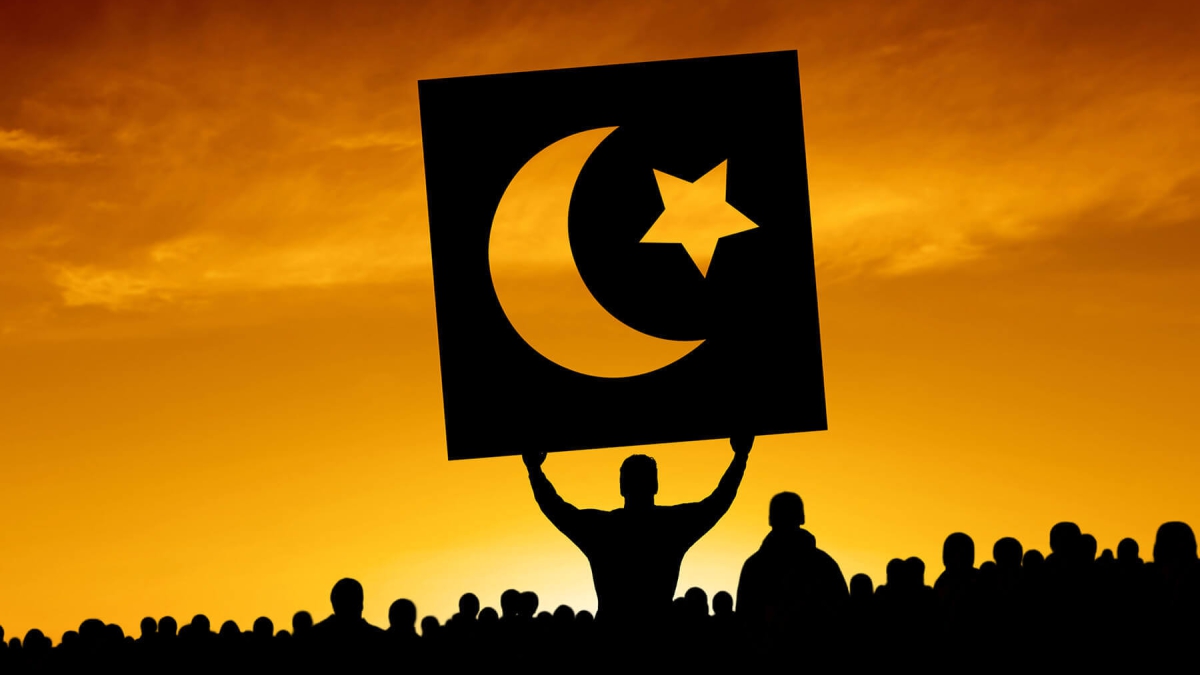The Islamic Roots of Democratic Rebellion and Liberty

"There is no god but Allah, and Gaddafi is his enemy!" So reads one of the popular mottos used by the Libyan rebels, who just put an end to Muammar Gaddafi's 42-year-long tyranny after a chaotic civil war. Similarly, most rebel fighters who captured Tripoli this week were chanting, "Allahu Akbar!" which means, "God is the greatest!" ("Allah" in Arabic simply means "God.")
Ironically, though, the now-dethroned Libyan colonel, too, had long been referring to God to justify his dictatorial rule. A mantra of his regime bluntly read: "Allah, Muammar, Libya - that's all we need!"
The image of Allah, in other words, seems to have shifted in the minds of many Libyans from a pillar of authoritarian rule to a beacon of liberty.
A similar transformation seems to be ongoing in Syria as well, which used to have its own version of the authoritarian Arab trinity: "Allah, Syria, Bashar - that's all we need!" But the peaceful Syrian protestors who have been raising their voice against the dictatorship of Bashar Assad and co., despite all the killing and torture they face, are now using a different motto: "Allah, Syria, Freedom - that's all we need!"
It is perfectly understandable that such religious themes within the Arab Spring comes as confusing, if not worrying, to the Islamo-sceptic Westerners (and even some Arab secular liberals) who assume that all political manifestations of Islam will lead to tyranny. Moreover, they have in their mind the unpleasant case of the Iranian Revolution, which, after a brief "spring" in 1979, replaced the secular dictatorship of the Shah not with liberal democracy, but Islamic theocracy.
However, the history of the Muslim civilization shows that Islam has been understood in many different ways, and while it sometimes has been used to support tyrants, it more often than not challenged them. In fact, one of the very early theological splits in Islam was precisely on this issue. The successive caliphs of the Umayyad Dynasty (661-750 AD) promoted a theory of divine predestination, which implied that the corrupt Umayyad rule was predestined, and thus willed by God. The opposing theologians, who defended humans' freewill, argued that rulers were responsible to both God and the people.
After a few centuries of debate, the Sunni view on this matter settled on a middle position, which valued strong rulers, but also expected them to be just and lawful. In other words, as historian Bernard Lewis notes, "Islamic tradition strongly disapprove[d] of arbitrary rule." In the Ottoman Empire, the ritualistic expression of this idea was a popular slogan that common people would say to the sultans after Friday prayers: "Don't be arrogant my sultan, God is greater than thou!"
In the modern age, however, traditional Islamic law, whose functions included constraining arbitrary power, failed to update itself, and was gradually rendered ineffective via "modernization." As Noah Feldman illustrated brilliantly, this process produced not the liberal democracy of the West, but various secular (and sometimes fiercely secularist) autocrats - such as the Atatrk of Turkey, Reza Shah of Iran, or the Nasser of Egypt.
Islamism, the totalitarian ideology that aspires for an "Islamic state," was more of a reaction to this modern crisis, rather than a direct continuation of the Islamic tradition. It was also based on an export of the worst ideas of the West. One of the founders of the Islamist ideology, Pakistani thinker Sayyid Abu al-A'la al-Mawdudi, had openly acknowledged that his "Islamic state" would "bear a kind of resemblance to the Fascist and Communist states," in the way it would dominate the whole society.
Now, here is the key question for today: If Mawdudi and his followers synthesized Islam with totalitarianism, can others synthesize it with liberal democracy?
The answer does not look as grim as some suspect, as I argue in more detail in my new book, Islam without Extremes: A Muslim Case for Liberty. Not only the symbolic combination of "Allah" and "freedom" in the minds of the Arab masses, but also the ongoing discussions within more moderate Islamic parties show positive signs. Turkey's incumbent Justice and Development Party also seems to play an indirect role, by showing that pious Muslims can well be a part of the democratic game and gain from it. As covered in this very interesting report, at least the outlawed Muslim Brotherhood of Syria seems to have taken important lessons from the Turkish case, and got transformed from a militant and oppressive group to a moderate and relatively liberal one.
To be sure, a probable transformation of the Muslim mind from authoritarianism to liberalism would be a very challenging process, which would face many obstacles. But was the political evolution of Christianity any easier? It certainly took a lot effort to move from the Spanish Inquisition and the "divine right of kings" to the liberating motto of Benjamin Franklin: "Rebellion to tyrants is obedience to God." Islam, I believe, is just no less capable of going the same distance.
Source: Huffington Post - Mustafa Akyol
Topics: Bashar Al-Assad, Islam, Islamic Golden Age, Libya, Muammar Gaddafi, Syria Channel: Opinion
Views: 2965
Related Suggestions





























